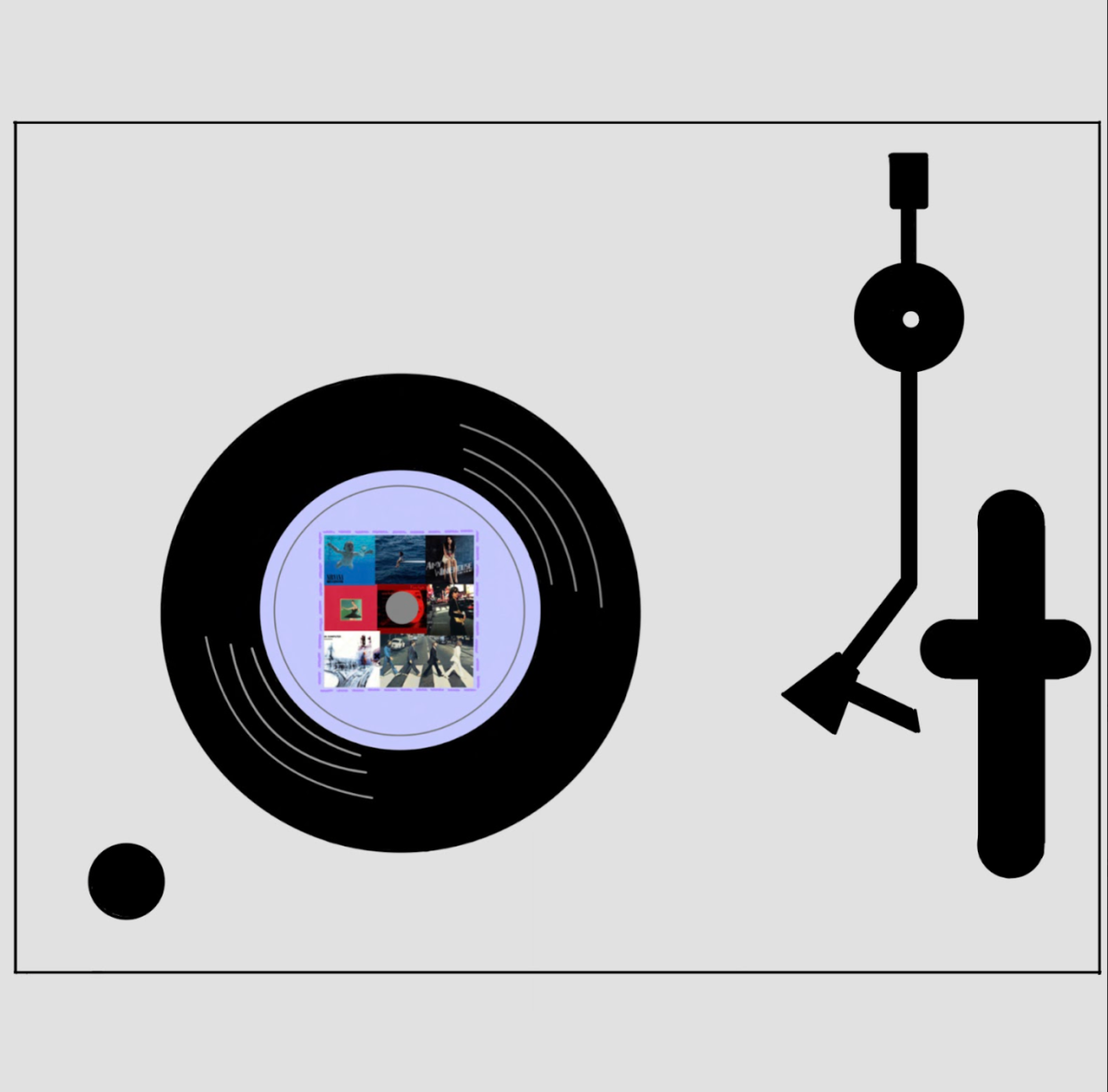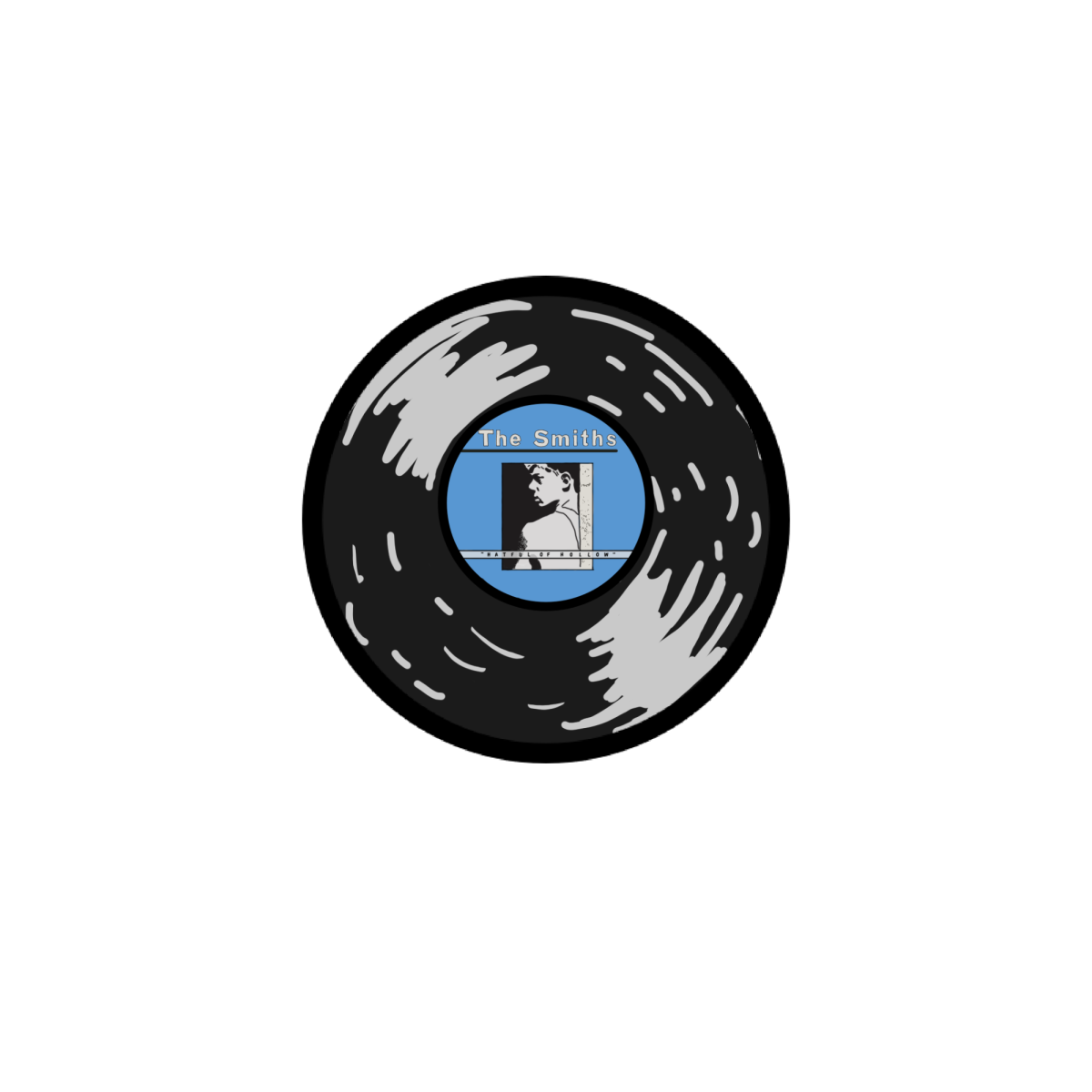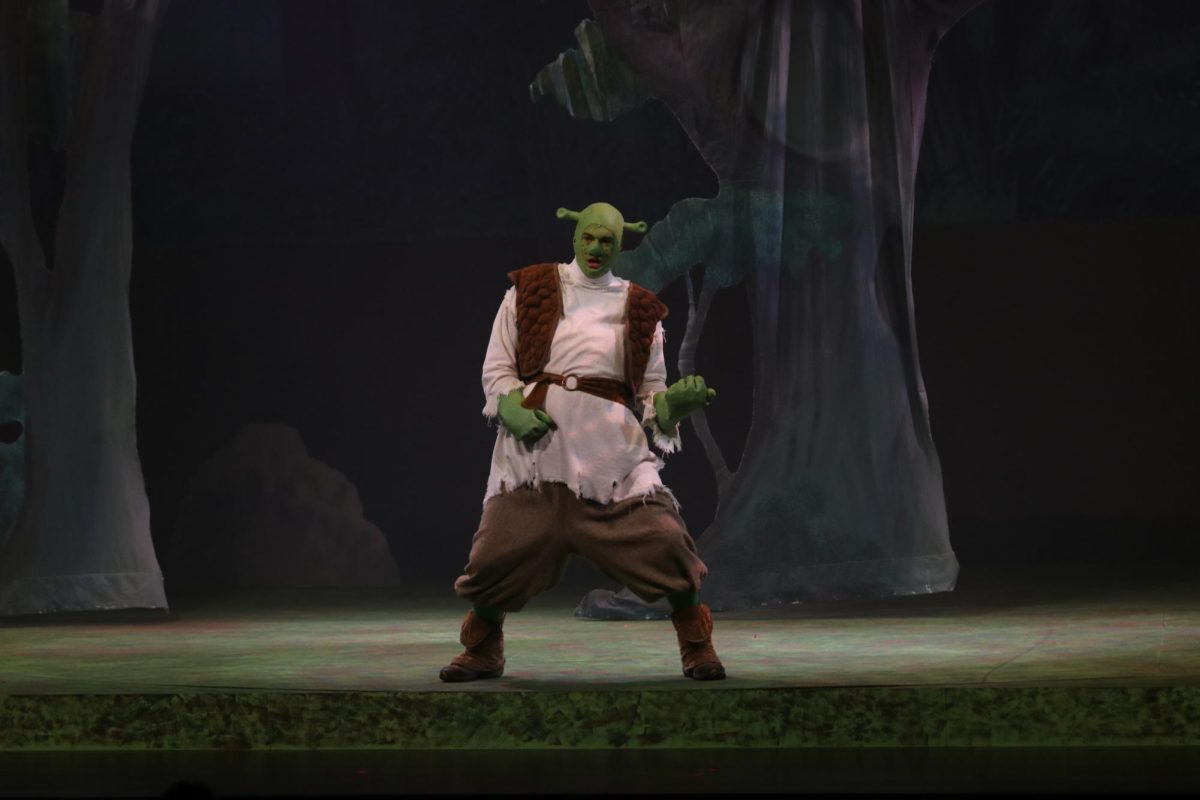As 2024 is beginning, I am becoming inconsolably nostalgic, as I do every January. Something about the new year (and my impending graduation) makes me want to reminisce on the past and the events that made me who I am today. Therefore, for this installment of everyone’s favorite album review column, we’ll be taking a brief look at 20 albums that changed music.
1. Bringing It All Back Home (1965)
Bob Dylan
Dylan practically invented the folk-rock genre with this album, widely believed to be the first of its kind. The twangy guitar and crooning harmonica combined with the surreal lyricism and bursts of rock n’ roll create a sound that was truly unique at the time of its release. Dylan’s “going electric” completely reimagined how music communicated. Without iconic tracks like “Subterranean Homesick Blues,” we wouldn’t have any future folk-rock poets like The Byrds, Simon & Garfunkel and Father John Misty.
2. The Velvet Underground & Nico (1967)
The Velvet Underground and Nico
This self-titled album, recognizable from the Warhol album art, is undoubtedly the most influential rock album of all time. Songs such as “Femme Fatale” and “I’ll Be Your Mirror” are gritty, yet soft, making listeners both uncomfortable and comfortable in an unfamiliar way. As the record alternates between Lou Reed’s folksy vocals and Nico’s cool falsetto, The Velvets introduce their listeners to the grimy, raunchy side of New York with their literary lyricism. Although the album wasn’t received well at the time of its release, it has accumulated unmatched fame over the years, and for good reason.
3. Abbey Road (1969)
The Beatles
Commonly viewed as The Beatles’ best album, “Abbey Road” clearly demonstrates a band in its prime. This record is the blueprint for all future “concept albums.” Each blues-rock song seamlessly flows into the next, without a single dull moment. Artists like Joni Mitchell, Oasis and the Who may have gone in completely different directions with their music if not for the inspiring “Abbey Road.” Aside from their music, The Beatles themselves took the world by storm, beginning the so-called “Beatlemania.” By simultaneously redefining The Beatles and redefining music, “Abbey Road” became a timeless classic.
4. The Rise and Fall of Ziggy Stardust and the Spiders From Mars (1972)
David Bowie
With his red-headed alter ego, Ziggy Stardust, David Bowie revolutionized rock by infusing glam pop into his 1972 album. He was one of the first big names to create a unique and detached character and image for fans to fall in love with, something that following musicians continued long after Bowie’s time. Ziggy influenced 70’s music, fashion, and culture. “The Rise and Fall of Ziggy Stardust” not only created a character, but an entire narrative that was told from beginning to end, from his first “Five Years” to his “Rock n’ Roll Suicide.”
5. Horses (1975)
Patti Smith
Patti Smith, punk icon and my personal role model, was one of the first artists to merge spoken-word poetry and music. As one of the first women to break into the punk-rock scene, Smith unapologetically made people uncomfortable with her raw, husky voice and unique sound. “Horses” begins with the lyric, “Jesus died for somebody’s sins, but not mine,” immediately marking Smith as a rebel with a cause. Her uncompromising artistic vision paved the path for all female artists to come, both sonically and culturally.
6. Rumours (1977)
Fleetwood Mac
“Rumours” was one of the first testaments to the power of turning personal pain into art. The album originated from the complicated relationships between members of Fleetwood Mac, such as several romances and breakups. Rather than letting the turmoil tear them apart, the band transformed their troubles into art with this deeply emotional and relatable album. While much of the mainstream music at the time was shallow and bubbly, the success of “Rumours” proved that emotional music could be popular too.
7. Purple Rain (1984)
Prince
In his most iconic album, Prince showcased his ability to transcend both musical and cultural boundaries through the rejection of typical genre and gender expectations. Fusing rock, R&B, pop and funk, “Purple Rain” is a sonic journey through its use of psychedelic grooves, electric guitar solos, and soul-stirring lyrics. Without the record’s title track, a legendary eight-minute anthem, we wouldn’t have the same monumental rock ballads of today.
8. Straight Outta Compton (1988)
N.W.A.
N.W.A. defined an entire genre with “Compton,” making a name for gangster rap. Through its social and political commentary on the harsh realities of California gang culture, this album boldly became a battle cry for those seeking change. N.W.A.’s gritty portrayal of city life served as an example for future artists to speak out against systemic issues without censorship. Without the legendary members of N.W.A., like Dr. Dre and Ice Cube, we wouldn’t have future rappers like Eminem, 50 Cent or Dizzee Rascal.
9. Nevermind (1991)
Nirvana
With this album, Nirvana finally brought grunge into the mainstream during the early 1990s. The immense success of “Nevermind” led the Seattle music scene and alternative rock to gain widespread popularity. “Smells Like Teen Spirit,” the album’s lead single, became the cultural anthem for all high schoolers in the 90s, defining a generation. Nirvana’s raw, unpolished style of music added to the album’s authenticity and led major labels to begin actively seeking alternative and independent artists. “Nevermind” challenged traditional norms of what genre could achieve mass popularity, paving the way for a more diverse music industry.
10. Debut (1993)
Bjork
Bjork’s first solo album is a sonic journey, defying all categorization. Composed of slow, sultry tracks like “Human Behaviour” and EDM-esque, hyper-pop tracks like “Big Time Sensuality,” “Debut” is an album like no other. While each song differs greatly from the next, Bjork’s distinctive vocal style shines throughout, adding an element of cohesivity. Bjork’s boundary-pushing innovation and willingness to explore new sounds paved the way for the future evolution of avant-pop and electronic genres.
11. Grace (1994)
Jeff Buckley
Jeff Buckley’s sole album, “Grace,” remains timeless to this day, influencing subsequent generations of musicians and changing the entire singer-songwriter genre. Buckley’s unparalleled vocal range and emotional delivery set him apart from his predecessors. With universal themes of love and longing flowing through, “Grace” appealed to a wide audience and expanded the reach of alternative rock. Despite his tragic passing in 1997, Buckley has remained a cult figure in the music world, his influence reaching far and wide.
12. OK Computer (1997)
Radiohead
In tandem with Buckley, Thom Yorke popularized the angsty falsetto in a time when music was dominated by lad-rock. Radiohead’s embracement of contradiction, demonstrated by thoughtful lyrics set against an electronic background, embodies a cornerstone of modern music. The use of unconventional time signatures, innovative production techniques and Yorke’s haunting vocals contribute to the album’s experimental nature. The themes of “OK Computer” resonate with the anxieties of the late 20th century, making it a cultural anthem for a generation dealing with the rapid changes brought by technology.
13. Either/Or (1997)
Elliot Smith
“Either/Or” is made up of profound lyricism, themes of addiction and heartbreak and a simple finger picked guitar. The stripped-down arrangements allow his intimate and delicate vocals to take center stage. Tracks like “Between the Bars” and “Angeles” exemplify this minimalist approach, drawing listeners into Smith’s introspective world. Smith stands as the most prominent influence on today’s indie singer-songwriters. Without his musical impact, the entire “sad-indie-rock-girl” genre would be wiped out, from Phoebe Bridgers to Nick Drake to Alex G.
14. When The Pawn (1999)
Fiona Apple
Apple’s sophomore album solidified her reputation as an uncompromising artist who refused to conform to the mainstream. Her intricate piano playing and raw vocal delivery were unapologetic throughout “When The Pawn,” reflecting the intensity of the album’s lyrical content. Tracks like “Fast as You Can” and “Limp” showcase the dynamic range of Apple’s musical expression, while the ballad “Paper Bag” highlights her ability to create emotionally resonant and introspective moments. Apple’s commitment to artistic integrity and her willingness to explore the complexities of the human experience are what make “When The Pawn” so impactful.
15. For Emma, Forever Ago (2007)
Bon Iver
“For Emma, Forever Ago” was revolutionary for its emotional authenticity, minimalist production, and the way it challenged traditional norms in folk and indie music. Justin Vernon’s experimental use of auto-tune on certain tracks, like “Flume,” was unconventional at the time. Rather than using auto-tune as a corrective tool, he made it a creative instrument, contributing to the album’s distinctive sound. This approach challenged preconceived notions about the use of technology in folk and indie music.
16. My Beautiful Dark Twisted Fantasy (2010)
Kanye West
Highly regarded as one of the most groundbreaking rap albums of all time, West’s 2010 album transcends traditional hip-hop boundaries. The ambitious production is demonstrated through his use of electronica, intricate sampling and synthesizers. As one of the first rap concept albums, “My Beautiful Dark Twisted Fantasy” weaves a narrative that explores themes of fame, love, mental health and self-reflection. To this day, West’s song “Runaway” is one of the most recognizable rap songs of all time.
17. Channel Orange (2012)
Frank Ocean
“Channel Orange” stands as a groundbreaking album in contemporary music, reshaping the R&B genre as a whole. With its narrative depth and storytelling, the album delves into themes of love, identity and societal issues. Ocean’s genre-bending sound seamlessly blended R&B, soul, hip-hop, and electronic elements. The album’s innovative production and intricate lyricism, especially in tracks like “Thinkin’ Bout You” and “Pyramids,” showcased Ocean’s prowess. “Channel Orange” also holds cultural significance for Ocean’s openness about his sexuality, contributing to a more inclusive atmosphere within the music industry.
18. Melodrama (2017)
Lorde
Unarguably my favorite album of all time, “Melodrama” genuinely redefined pop music. The definition of a concept album, the entirety of “Melodrama” takes place at a house party, reminiscing on past relationships and discovering new ones. Lorde beautifully puts themes of heartbreak, self-discovery and the exhilarating highs and lows of growing up into words. Lyrics like, “Summer slipped us underneath her tongue/Our days and nights are perfumed with obsession,” demonstrate Lorde’s ability to push creative boundaries. “Melodrama” influenced a new generation of artists by setting a standard for authentic storytelling and emotional depth in mainstream pop.
19. Norman Rockwell! (2019)
Lana Del Rey
“Norman Rockwell!” is characterized by its lush, cinematic soundscapes, harking back to classic Americana while incorporating elements of folk, rock and dream pop. Del Rey’s songwriting reaches new heights on this record, with poignant and introspective lyrics that explore themes of love, disillusionment and the American experience. Tracks like “Venice B****” and the title track are shining stars of her innovative lyricism. The synthesis of Del Rey’s artistic vision with Jack Antonoff’s innovative production led to its surprising mainstream success.
20. Punisher (2020)
Phoebe Bridgers
Anyone who knows me knows how I feel about Phoebe Bridgers. She’s a visionary and her impact on the indie music scene is undeniably astronomical. The album’s haunting arrangements, with its diverse range of instruments, provided a unique backdrop to Bridgers’ intricate narratives. The critical acclaim and cultural resonance of “Punisher” emphasize its impact, with Bridgers proving that indie music could be both commercially successful and artistically innovative. Without Bridgers, the modern indie scene would be lost: no Gracie Abrams, no Clairo and no “Folklore.”
From the folk-rock revolution sparked by Bob Dylan’s “Bringing It All Back Home” to the melancholy innovation of Phoebe Bridgers’ “Punisher,” each album is a testament to the ever-changing nature of music. We’ll see what new music developments 2024 brings. See you on the next one, music lovers!










